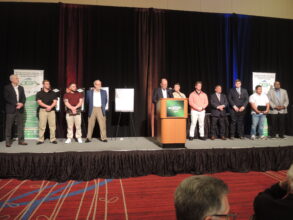A Huge Victory in Massachusetts
By Shane Sweet
It’s no secret to marketers of propane and heating oil: There are those who work daily to do us ill. This includes activists who seek our complete and utter demise, often with inflammatory, unsubstantiated claims.
Some of these activists seem to believe every word they utter. Others, it seems, are pursuing an agenda, a means to a desired end (of us).
Unfortunately, activists are not limited to what I call the traditional kind–individuals with little knowledge, espousing opinions on what is good and what is not. Another type of activist includes certain elected officials, members of the judiciary, so-called public policy experts, regulators, and countless councils, boards, panels, and nonprofits.
Activists of both flavors are to be endured by every industry. The bad news for us is that anti-fossil fuel activists are here to stay. Covid-19 has slowed them down, as it has everyone, but they, like almost everyone, have transitioned to virtual communities. And in spite of ongoing efforts of the heating oil and propane industries, it seems the degree of hostility toward our energy solutions just keeps growing, and often with the general tenor of it’s “anything else but you” (us). Generally, and regrettably, activists do not see us as part of the overall energy equation. We are not on the list of products that they consider even marginally acceptable.
Which brings me to the matter of Brookline, Massachusetts, over the past 11 months.
About a year ago, Brookline, at the urging of just one of those traditional activists, conducted a town-wide vote to enact a bylaw “prohibiting any permits for construction of certain buildings with fossil fuel infrastructure.”
It was a wake-up call, a call to arms, and as of July, it was only one of at least eight similarly intended proposals in various stages of consideration or adoption in the Commonwealth of Massachusetts.
I’ve known Michael Ferrante for the better part of 30 years. The overlap of his three decades as the executive for the Massachusetts Energy Marketers Association, and my 25-plus years as executive for state and regional fuel associations, provided for plenty of one-on-one talks about the status of the energy industries, and I’m glad to say, he still takes my calls in spite of our history.
Suffice it to say, he and I frequently exchanged industry news from beyond our respective areas of responsibility. I recall leaving many an industry meeting, shaking my head, muttering, “And I thought I had it bad,” at once discouraged by what my peers were dealing with, and grateful that their issue had not yet “reached my shores.” As fuel marketers, we are used to being threatened by those not aligned with us. But the Brookline matter was something else entirely.
Ferrante first became aware of the initiative in July 2019 — about a year ago. He was alerted by a member of his association that something might be brewing in Brookline, which is known for progressive climate change initiatives. Ferrante began attending public hearings on the proposal that progressed into the fall.
“As one might expect, the implications of the Brookline matter went far beyond Brookline, far beyond Norfolk [County], far beyond Massachusetts,” Ferrante said. “Notwithstanding that Brookline’s action was predicated on falsehoods about heating oil, idealism and at least tacit support by those that would stand to benefit, the choice to fight this was academic. We could not let this stand.”
As it turned out, that position was supported, grudgingly, by the attorney general of Massachusetts in a July 21 letter notifying Brookline that the by-law was untenable. The AG added:
“If we were permitted to base our determination on policy considerations, we would approve the by-law. Much of the work of this Office reflects the Attorney General’s commitment to reducing greenhouse gas emissions and other dangerous pollution from fossil fuels, in the Commonwealth and beyond.”
The AG’s office said the by-law was preempted:
1. Because it interferes with the express statutory goal of uniformity in the state building code.
2. Because it interferes with the express statutory goal of uniformity in the state gas code.
3. [Because of] the fundamental state policy of ensuring uniform utility services to the public.
“We’re most pleased with the Attorney General’s decision because it was based on a thorough review of current statutes and regulations in Massachusetts,” Ferrante said. “Also, it preserves the right for homeowners and businesses to choose their energy source, and it provides our industry with a legal ruling to battle similar efforts moving forward.”
Michael Ferrante and the Brookline issue are on the program for the VirtualPropaneExpo.com on Aug. 20. Michael Ferrante can be reached at mferrante@massenergymarketers.org.
This column by Shane Sweet also appears in the August 2020 issue of Fuel Oil News.

